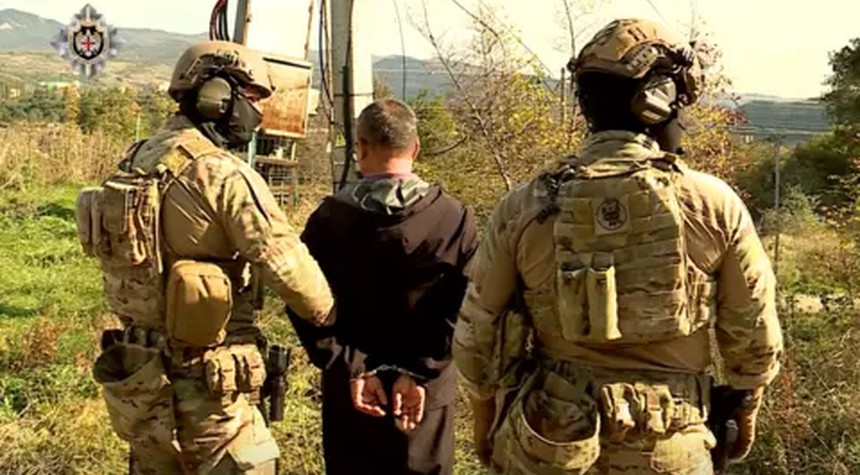In a disturbing development highlighting ongoing national security threats, Georgian authorities have apprehended three Chinese nationals attempting to illegally acquire uranium in what appears to be a coordinated international smuggling operation.
The suspects, who were arrested in Tbilisi, Georgia’s capital, allegedly planned to purchase two kilograms of uranium for $400,000 before trafficking it through Russia to China. This incident represents yet another example of foreign actors attempting to exploit former Soviet territories for access to nuclear materials.
Georgia’s State Security Service (SSG) conducted a precise intelligence operation that caught the suspects red-handed. Security footage released by Georgian authorities shows armed tactical units intercepting the suspects’ vehicle and discovering two glass containers holding a yellow substance, later confirmed through laboratory testing to be uranium.
The sophistication of this operation raises serious concerns about China’s potential involvement in nuclear material trafficking. According to Georgian security officials, the arrested individuals were working under the direction of additional conspirators based in China, suggesting a broader network of nuclear material procurement efforts.
Let’s be clear about the facts: These individuals entered a sovereign nation with the explicit purpose of acquiring nuclear material on the black market. This wasn’t a misunderstanding or a business deal gone wrong – it was a calculated attempt to circumvent international nuclear safety protocols and export controls.
The suspects have entered not-guilty pleas in a Tbilisi court but remain in custody due to flight risk. Under Georgian law, they face up to five years imprisonment for attempting to purchase nuclear materials illegally – a sentence that seems remarkably lenient given the potential consequences of their actions.
This incident raises several critical questions about international security protocols and China’s nuclear ambitions. While the specific isotope of uranium involved remains unclear, any unauthorized trafficking of nuclear materials presents a severe threat to global security and stability.
The fact that former Soviet states continue to be targeted for their nuclear materials demonstrates an ongoing failure of international safeguards and highlights the need for stronger security measures. This case serves as a stark reminder that the threat of nuclear proliferation remains very real, particularly when state actors may be involved in coordinating such activities.
As this situation develops, it becomes increasingly crucial for Western nations to reassess their strategic relationships with China and strengthen cooperation with former Soviet states to prevent nuclear material trafficking. The safety of our nation and our allies depends on maintaining strict control over these dangerous materials and preventing them from falling into the wrong hands.
Related: Democrat Senate Candidate’s Nazi Tattoo Reveals Left’s Double Standard


